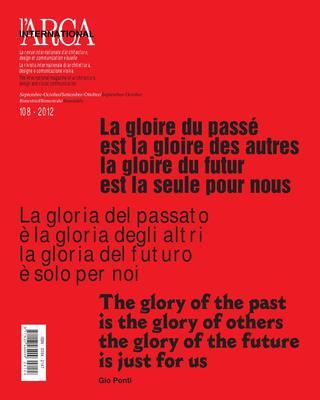
L'Arca International N° 108
September / October 2012
Click here for contents
Debunking the myth
As of May, in each new issue of the magazine we began publishing a project or idea about how to create a new concept of the city and how to develop part of the urban structure to adapt to the needs of the near future.
Our intention is not to just show off more or less utopian or fanciful ideas, but rather to generate serious international debate about how we can move beyond (something now much-needed the old town-planning experiments and parameters still underscoring the creation and development of urban settlements all over the world, with the terrible results there for all to see).
The cities and metropolises in every continent of the world are now absolutely the same in terms of how they manage their services and infrastructures. Everything is standardised along the lines of the global model of Western metropolises; and this applies to both their very few strong points - only really practical until the introduction of individual mechanical transport on wheels - and their huge flaws due to reckless increases in forms of transport, which, implemented on old pathways and lines that certainly were not designed for them, are completely altering living space that ought to be allocated for human activities.
I think the time has come, at least for those who claim to be involved in design and town-planning operations, to turn over a fresh leaf and begin to envisage alternative ways of accommodating at least tens of thousands of people in unique organisms carefully designed to meet their living and work requirements.
For at least the next few decades and centuries, I do not think we can carry on polluting and ravaging the environment, asphalting over all the free spaces between buildings just to make it easier for personal means of transport on wheels. Huge vertical organisms in various parts of the world are already demonstrating the possibility of communal and private transport aimed at connecting together people so that they can carry out their various activities.
The same concept can easily be developed horizontally. As usual, the pages of our magazine are and will be open to all new proposals, however fanciful or poetic. The important thing is to debunk the myth that nothing is really possible, because altering transport systems will result in serious economic and industrial problems and hence have political consequences. I will always be convinced that the problem can be solved by getting the various industries involved to construct new homes and, with them, new cities.
Cesare Maria Casati

